Overview
Nutritional challenges of a preterm infant
Infants build up their nutrient stores during the third trimester of pregnancy however, preterm infants miss several weeks to months in utero during this phase of fastest growth1. They are born with depleted nutrient stores and as a result their nutritional needs are high.
Around 8% of UK babies are born prematurely and could experience challenges such as developmental delays, growth failure, issues with their gastrointestinal (GI) tract, necrotising enterocolitis (NEC), low levels of important nutrients and other medical complications2.
Feeding intolerance in preterm infants is a major concern in neonatal care with up to 50% of premature infants struggling with delays in achieving full enteral feeding, a consequence of feeding intolerance is suboptimal nutrient intake and a decreased rate of growth3,4.
Nutritional management of a preterm infant
The most important objective of nutritional management of the preterm infant is the prevention of growth failure in order to protect the infant’s brain5. More recently, research has demonstrated an association between increased nutrients such as protein and energy and positive developmental outcome6.
Breast milk is the best for preterm infant nutrition, it has been shown to confer improved short- and long-term outcomes such as lower rates of necrotising enterocolitis (NEC) and neurodevelopmental advantages7,8. If breast milk is in short supply or not available, a formula that has been designed for preterm infants1 and closely mimics breast milk should be used.
SMA Gold Prem® formulas are foods for special medical purposes, specially designed to meet the needs of preterm low birth weight infants. They offer a unique combination of nutrients and 100% whey, partially hydrolysed protein for improved tolerance9-12.
The chart below shows some of the developmental challenges faced by preterm infants and how the SMA Gold Prem® formulas have been designed to help with their nutritional management.
How SMA Gold Prem® formulas are designed to help overcome the nutritional challenges
| PRETERM CHALLENGE | IMPLICATION | FEATURES OF SMA GOLD® PREM 1 | HOW THIS HELPS MANAGE THE CHALLENGE |
|---|---|---|---|
Smaller stomach capacity but higher nutritional requirements than term infants 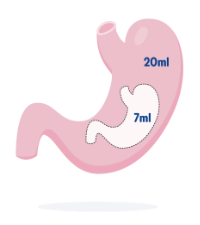
| Feed intolerance is common in preterm infants and may be related to the feed volume being too large for their small stomach capacities. Feeds may be better accepted if given at volumes more closely aligned to their stomach capacity13 | Protein 3.6g/100kcal | -The level of protein allows for smaller volumes to be used to meet protein requirements. -Provides superior weight gain and nitrogen retention without metabolic stress14. -On the rare occasion where extra energy would be required beyond the recommended volume for protein amounts to be met, ESPGHAN (2010)1 do state that “Some excess protein intake over requirements was not shown to cause detrimental effects in pre-terms, BUT a small deficit will impair growth” |
Immature peristaltic ability/motor function 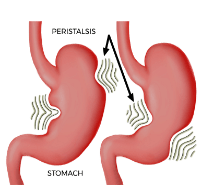
| Commonly causes enteral feed intolerance due to: - Poor suck swallow co-ordination - Inefficient oesophageal motility - Delayed gastric emptying - Slow intestinal transit time15. | Partially hydrolysed Protein | Use of partially hydrolysed protein allows for gastric emptying time closer to that of breast milk16,17 . |
Immature gastrointestinal functions 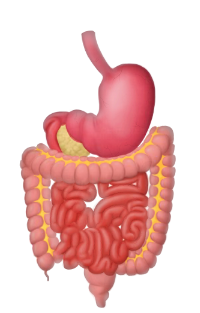
| Inefficient digestion and absorption: - Immature digestion of lactose, protein and fat - Limited glucose absorption18,19. | - Partially hydrolysed protein helps with the digestion of protein - Provision of maltodextrin as part of the CHO source and not all as lactose - Provision of some of the fat as MCTs | Breast milk contains its own enzymes (proteases e.g., plasmin, lactase and lipase) to help with the digestion of breastmilk20,21. Therefore, if breast milk is not available we need to provide a product that helps to address these digestive capabilities. |
Increased nutrient needs combined with depletion of nutrient stores 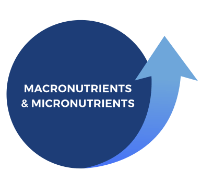
| Growth failure & More vulnerable to brain injury and long-term neurological effects 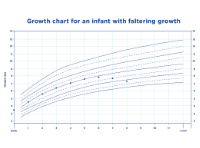
| - Protein 3.6g/100kcal - Partially hydrolysed Protein | Improving nutrient intake through improved tolerance and also through being able to meet protein requirements at a lower volume means these needs are met sooner in the feeding regime. Full enteral feeds are also achieved more rapidly12. This may help to reduce the protein deficit these preterm infants so often struggle with. |

